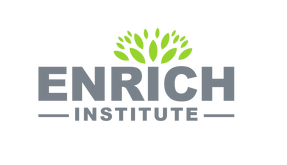|
By Heng Pheakdey Until very recently, to get the job you want, all you need is to have the right hard skills which refer to the technical skills necessary to perform your job. For instance, to be a journalist, you need to know how to write a good story; to be a teacher, you to know how to teach; to be an accountant, you need good math and know how to operate accounting software and so on. However, in today competitive job market, having just the right degree, experience or series of technical skills is no longer enough to land you a good job. Recruiters around the world are now looking for an additional set of soft skills which they believe is even more important than hard skills.
Soft skills are the intangible character traits or qualities of an individual. They revolve around personal relationships, attitude, habits and how we interact with other people. Soft skills include, among other things, interpersonal skills, communication, problem solving, and leadership skill. These skills are generally not taught at schools and have previously been overlooked and under-valued. Soft skills are essential for our personal and professional development because they enable us to use our technical skills and knowledge effectively and efficiently. They improve the way we interact with other people and they influence how we feel about ourselves and how others perceive us. Soft skills are not only hard to learn but are also hard to find. A recent study by CAMFEBA suggests that the lack of soft skills is a major challenge for Cambodia’s workforce. There are many soft skills that you can develop to make yourself more employable. The followings are the most commonly sought after skills that you may want to improve. - Interpersonal Skills. Your ability to communicate and interact with other people effectively allows you to build rapport with colleagues and clients, leading to a better working environment and a good business relationship. One way to improve your interpersonal skill is to show that you care. Compliment people for their achievement. Say sorry when you made mistakes and say thank you when you are grateful. - Communication Skill. Good verbal and written communication is essential for pursuing career goals and increasing your value at work. One of the keys to be a great communicator is to be open-minded and listen actively to other people’s opinion. Pay attention and let the other person talk without interrupting. Observe the nonverbal signals such as body language, the tone of voice, and eye contact. It is also important to know the people you are communicating with and tailor your message to your audience. - Teamwork. Working in team of people with complementary skills boosts the team’s creativity, improves each member individual performance, increases their job satisfaction and enables them to complete tasks efficiently. That’s why it is hard to find a job description that doesn't require teamwork. The best way to sharpen your teamwork skill is to get involved in as many as group projects or activities as you can. Consider joining a sport club or doing voluntary work for the local organizations or the community. - Problem solving skills. The ability to solve problems and make sound decisions is critical in any job and both are desirable skills to develop. Good problem solving and decision making skills require analytical skills, creativity in identifying problems, brainstorming ideas and developing solutions. Training the brain to think creatively by solving crossword puzzles or playing mind games is a good method to sharpen your problem solving skills. - Leadership. Even though you are not applying for a leader position, employers are always looking for people with leadership potential. People with leadership quality are able to think critically, take initiatives, work with little or no supervision, stay motivated in doing their work and able resolve conflict peacefully. To develop leadership skill, always look for opportunities where you can take leadership role. This could mean, among other things, serving as a president for your class, taking the lead on class projects, or acting as captain of a sport team. Ironically, these skills which are so called “soft” can be very hard to learn. They are not something you can develop by just reading books. Improving soft skills requires great self-awareness and self-control. It is fundamentally about making a conscious effort to change your behavior and interaction with other people. Developing these skills takes a lot of practice over time but once acquired, they will be of great benefit for your career development. Heng Pheakdey, a capacity development specialist, is a founder of Enrich Institute, a Phnom Penh-based organization which has trained hundreds of young people.
1 Comment
1/25/2018 04:40:55 am
Soft skill is defined as the agglomeration of identity oddities, social light-footedness, and provision with language, personal practices, companionability and confidence that grade the individuals with varying degree. From my perspective, an employee must have to possess the required employability skills in order to be employable. Basically, soft skills are considered as the employability skills that complement the hard skills. This interpersonal skill has a huge contribution to shaping an individual's indisposition. That is the reason why an employee should acquire the required soft skills like- team building, leadership, communication, motivation etc, by which he can enhance his effectiveness at the workplace.
Reply
Leave a Reply. |
Categories
All
Archives
October 2017
Disclaimer: All views expressed here belong to their respective author and do not represent the views of Enrich Institute
|

 RSS Feed
RSS Feed
